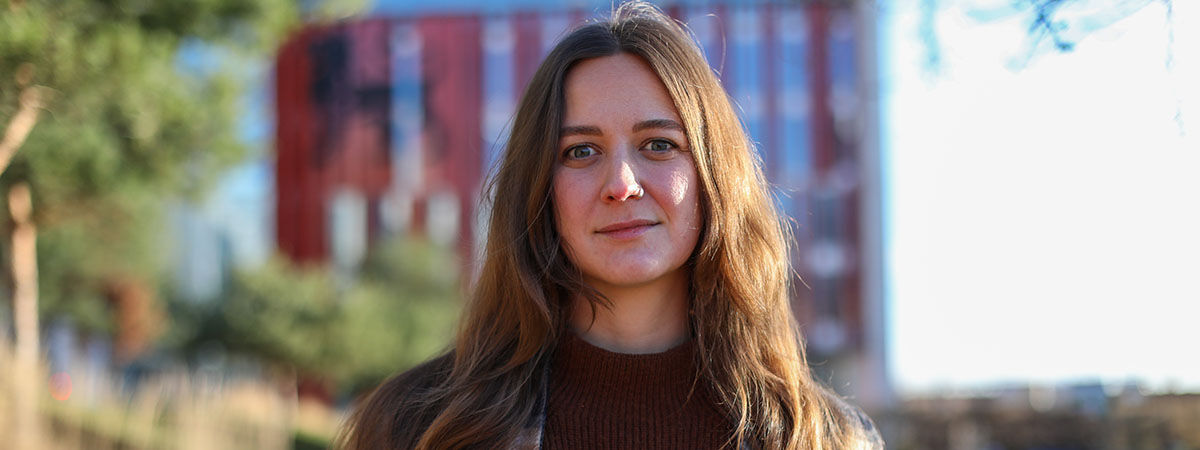
Gemma Moss
Associate Professor in Modern & Contemporary Literature
Gemma is Associate Professor of Modern & Contemporary Literature, and currently the Course Director for the BA English undergraduate degree programmes.
Biography
I joined BCU in 2016, after completing my AHRC-funded PhD at the University of Manchester in 2015.
As Course Director I oversee the design and delivery of our BA English courses. I also teach modules such as 'Key Critical Concepts', 'Writing and the Environment', 'Gender, Sexuality and Culture' and 'Modernism and its Legacies'. On the MA I've taught 'Literature and Truth' (which examines the relationship between literary genre and truth) and 'Literature and Place'. Each year I supervise undergraduates and postgraduate dissertations on topics such as modernist novels and poetry, realist literature, critical theory, gender, feminism, American literature, and contemporary British literature.
My teaching at BCU is informed by my research into modernist literature, the politics of aesthetic forms, and the workings of ideology. The modules I provide help students to see how literature examines issues of real-world importance. I tend to teach literature that examines identity, politics, the value of nature and the aesthetic, perspective and interpretation, sexuality, ideology, the mind and the body.
Expertise
Most of my research to date has been into the uses of music in modernist literature. I'm interested in writers who look to music when language seems damaged, ideological, or insufficient for communicating issues of human importance. My work examines debates - begun in Ancient Greece and extending into continental philosophy, musicology and sociology today - about how music and language create meaning, and the interactions between aesthetics and politics. My first book, Modernism, Music and the Politics of Aesthetics (Edinburgh University Press 2021) was shortlisted for the University English book prize. I've also written about music in the work of James Joyce, Ezra Pound, Sylvia Townsend Warner, E. M. Forster, D. H. Lawrence, Virginia Woolf, Ford Madox Ford, Paul Griffiths and Richard Powers. Issues of gender and sexuality are also close at hand in my work, which has explored Warner's relative marginalisation, and Forster's critique of purity-feminism. I'm also interested in how far we rely on the body or the mind in our experiences and interpretations of the world, and what is at stake in the value we place on thinking versus feeling.
I'm now working on a new edition of E. M. Forster's first novel, Where Angels Fear to Tread, for the Cambridge Edition of the Fiction of E. M. Forster - a six-volume project for which I sit on the Editorial Board. Forster is unusual among canonical English writers, having no modern scholarly edition. The new edition of Where Angels Fear to Tread (Cambridge University Press, 2025) will make manuscript material and newly discovered information available worldwide for the first time. This little-known novel by Forster is in fact a masterpiece that examines the very issues of thinking and feeling that I'm so interested in. When I've finished the Edition I hope to bring it to a wider audience through my writing and teaching. I'll also continue work on my next monograph, Literature and Drugs.
Course and Learning Environment
Our suite of BA English courses provides opportunities to develop in-depth subject knowledge and a wide range of transferrable skills. Our modules nurture an appreciation of the craft of writing, the complexities of language, the significance of histories, and the debates within contemporary culture. We aim to produce confident, knowledgeable graduates who have enjoyed their time with us. Fostering critical thinking and independent learning is at the heart of what we do, but our teaching also offers considerable support with the transition into University, and through each stage of the degree.
The first year provides introductions to the academic study of English Language, Literature and Creative Writing, on modules that always emphasise the real-world uses of the ideas, methods and skills that are taught. The second year of our degree offers increased optionality, enabling students to choose modules that deepen their expertise in the operations of language, different genres of writing, or specific historical and literary periods. We also offer a choice of module designed to help students hone their professional skills. By the third and final year, students have built up to the study of complex texts and theories, and complete a major project as an independent scholar on a topic of their choice.
During their time with us, students are always encouraged to attend a constantly evolving programme of events offered by the College of English and Media and across the Faculty, as well as a range of work experience opportunities from our industry connections to add to their CVs. Throughout their degree, students benefit from being taught by a team of staff who are world-leading experts in their field, as well as committed and talented teachers.